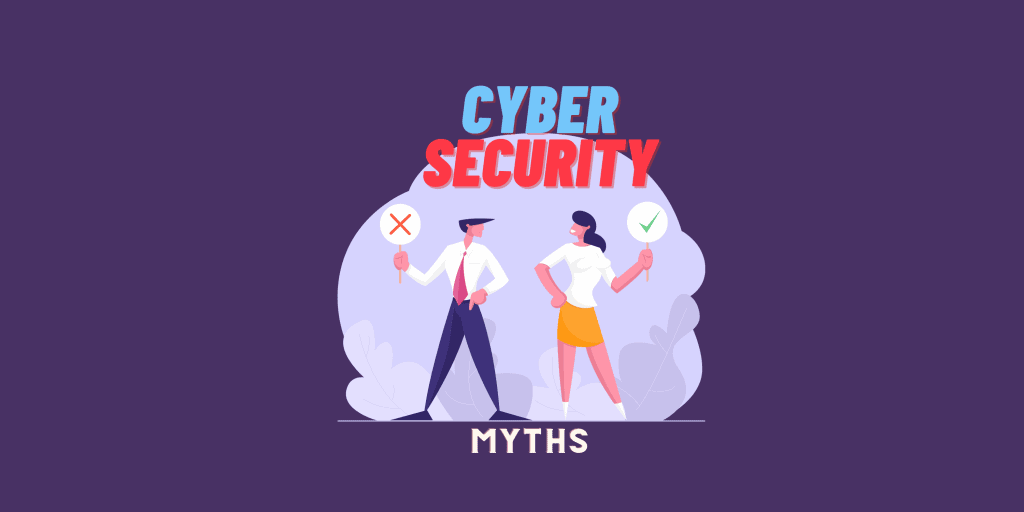Cybersecurity is a complex and often misunderstood field. As a result, there are many myths and misconceptions about cybersecurity that can lead businesses and individuals to make incorrect assumptions and potentially put themselves at risk. Here are five common myths about cybersecurity debunked:
Myth 1: Cybersecurity is only important for large businesses.
Fact: Cybersecurity is important for businesses of all sizes. While large businesses may have more resources to invest in cybersecurity, small businesses are just as vulnerable to cyber attacks and can suffer significant losses as a result. In fact, small businesses are often seen as easier targets for cyber criminals, who may view them as having weaker security measures in place.
Myth 2: Macs are immune to malware and viruses.
Fact: Macs are not immune to malware and viruses. While it is true that Macs are less likely to be targeted by cyber criminals, they are not immune to malware and viruses. In fact, the popularity of Macs has increased in recent years, which has made them a more attractive target for cyber criminals. Therefore, it is important for Mac users to take the same precautions as PC users and protect their devices with antivirus software and other security measures.
Myth 3: Only individuals with high public profiles are at risk of a cyber attack.
Fact: Anyone who uses the internet is at risk of a cyber attack. While public figures, such as celebrities or politicians, may be more at risk due to their high public profile, anyone who uses the internet is potentially vulnerable to cyber attacks. This includes individuals with low public profiles who may not think they are at risk.
Myth 4: Ransomware attacks only target large businesses.
Fact: Ransomware attacks can target businesses of any size. Ransomware is a type of cyber attack in which attackers encrypt a victim’s data and demand a ransom payment in exchange for the decryption key. If the victim does not pay the ransom, the attackers may threaten to delete the encrypted data or publish it online. This can have serious consequences for businesses, including the loss of important data, financial losses, and damage to their reputation.
Myth 5: Once your data is encrypted by ransomware, it is gone forever.
Fact: While it is true that ransomware can encrypt your data, making it inaccessible, it is not necessarily gone forever. In many cases, it is possible to recover your data by restoring it from backups or using specialized tools to decrypt the encrypted files. However, it is important to act quickly after a ransomware attack, as the longer your data remains encrypted, the greater the risk of it being permanently lost.
Myth 6: Cybersecurity is too expensive for small businesses.
Fact: Investing in cybersecurity is an important part of running a successful business, regardless of its size. While it is true that implementing effective security measures can require an initial investment, the costs of a cybersecurity breach can be far greater. In addition, there are many cost-effective cybersecurity solutions available, such as cloud-based services and managed security services, that can help small businesses protect their data and systems without breaking the bank.
Myth 7: Cybersecurity is only about technology.
Fact: While technology plays a key role in cybersecurity, it is not the only factor. In fact, human error is often the cause of cybersecurity breaches, such as employees clicking on malicious links or using weak passwords. Therefore, it is important for businesses to invest in cybersecurity training for their employees and to implement policies and procedures that promote good cybersecurity practices.
Myth 8: Cybersecurity is a one-time investment.
Fact: Cybersecurity is an ongoing process that requires regular attention and updates. Cyber criminals are constantly developing new tactics and technologies, and businesses need to stay vigilant and adapt their security measures accordingly. This means that cybersecurity is not a one-time investment, but rather an ongoing process that requires regular updates and maintenance to keep pace with the ever-changing threat landscape.
In conclusion, debunking these common myths about cybersecurity is crucial for businesses and individuals looking to protect their data and systems from cyber attacks. By understanding the true nature of the threats they face and the steps they can take to mitigate those threats, businesses and individuals can better protect themselves and their assets from the potentially devastating consequences of a cybersecurity breach.



